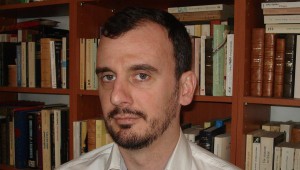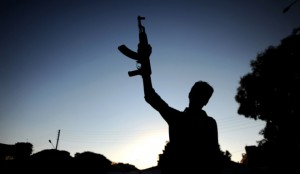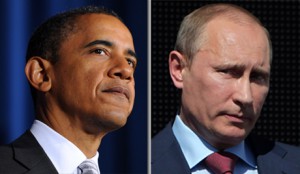Comme les lecteurs de RIA-Novosti pouvaient s’en douter la guerre des grands ensembles s’est sensiblement accentuée ces dernières semaines sur les deux fronts sensibles que sont l’Arménie et surtout l’Ukraine. Dès l’annonce de la décision du président Ukrainien de ne pas signer l’accord avec Bruxelles des milliers, puis des dizaines de milliers d’Ukrainiens sont descendus dans les rues de quelques villes de l’ouest et du centre du pays mais aussi et surtout de Kiev, pour protester contre cette décision politique.
Qui manifeste?
Les protestations ont été organisées par une alliance surprenante de partis de tendances différentes, allant de la droite à l’extrême droite de l’échiquier politique ukrainien. Il y a tout d’abord le parti “Alliance ukrainienne démocratique” (UDAR) du boxeur Klichsko qui bénéficie du soutien officiel de la CDU d’Angela Merkel. Il y a aussi le parti “Patrie” de Yulia Tymochenko (aujourd’hui emprisonnée pour corruption et suspectée de complicité de meurtre) qui appelle à renverser le pouvoir ukrainien actuel. Enfin il y a “l’Union pan-ukrainienne Svoboda ” (Liberté) qui portait tout simplement le nom de parti National-socialiste d’Ukraine jusqu’à 2004. Ce parti appelle clairement à manifester pour renverser le pouvoir et déclencher une révolution sociale et nationale (avec l’aide de milices et de sous fratries pagano-radicales telle par exemple le Wotan-Jugend) tout en dénonçant la mafia juive qui gouverne l’Ukraine! Que n’entendrait-on pas si de tels propos étaient tenus par des officiels russes!
Ces trois partis ont formé une alliance bien improbable appelée “Groupe d’action pour la résistance nationale” qui tend donc à vouloir intégrer l’union européenne en renversant au passage le pouvoir en place, pourtant légitimé par les urnes. Un bien étrange cocktail de mouvements dont on ne peut que suspecter que leur brusque tropisme européiste ne soit en réalité surtout motivé par un mélange d’avidité du pouvoir et de haine profonde de la Russie.
Ce groupe a aussi le soutien de certains tatars musulmans de Crimée qui exigent la démission du gouvernement et de stars du show bizness dont une chanteuse de pop music a même menacé de s’immoler si des changements n’arrivaient pas. Enfin une actrice américaine, petite amie du frère du boxeur Klichsko, s’est elle aussi empressée de soutenir les manifestants et leurs aspirations euro-occidentales. Enfin ils ont le soutien des Femen qui ont, lors d’une manifestation à Paris, choisi d’uriner en public sur les portraits du président ukrainien sans que les forces de l’ordre françaises ne réagissent. Des soutiens qui en disent long.
Continue reading





